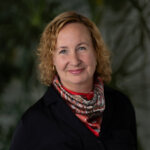What`s the clue; better planning, new technology or just more money? - The area challenge in Norwegian salmon farming
-
 Tonje OsmundsenProsjektdeltager
Tonje OsmundsenProsjektdeltager
Norwegian salmon farming has grown tremendously over the last 50 years, and it now constitutes around 75% of the country’s total seafood export value. The grow-out phase typically takes place in coastal waters. There are ambitions for continued strong growth. Five years ago, a survey revealed that the fish farmers saw the lack of available sea area as the industry’s greatest challenge for continued growth. This paper examines the current and future situation for area use, needs and availability, for salmon farming in Norway. The paper considers several possible changes that can influence this, including the coastal zone planning system, new technologies for offshore, land-based and closed salmon farming, and new tax-schemes that affect the distribution of burdens and benefits from salmon farming. The main finding is that central government has several options available, if it would like to prioritise aquaculture in terms of access to coastal waters. However, this would imply a full-scale overhaul of the present allocation system, as well as a dramatic change of the current planning system, which in turn means challenging local democracy – not a very likely development under the current political circumstances.
This leaves the industry with two options; to reduce salmon lice, emissions and escapes and to increase legitimacy on all levels, and by granting the local municipalities a larger share of the enormous value creation seen in the salmon sector. While the ambitious plans of doubling production by 2030 and increase it five times by 2050 certainly will require more and better coastal aquaculture localities, the actual extent of area shortage will to a large degree depend on the development of new production models; land-based, offshore, contained net pens and the production of large smolt. Success in these endeavours, could also have an impact on global production of salmon, by opening the market for new actors, thus reducing the Norwegian share and the profitability of the industry.